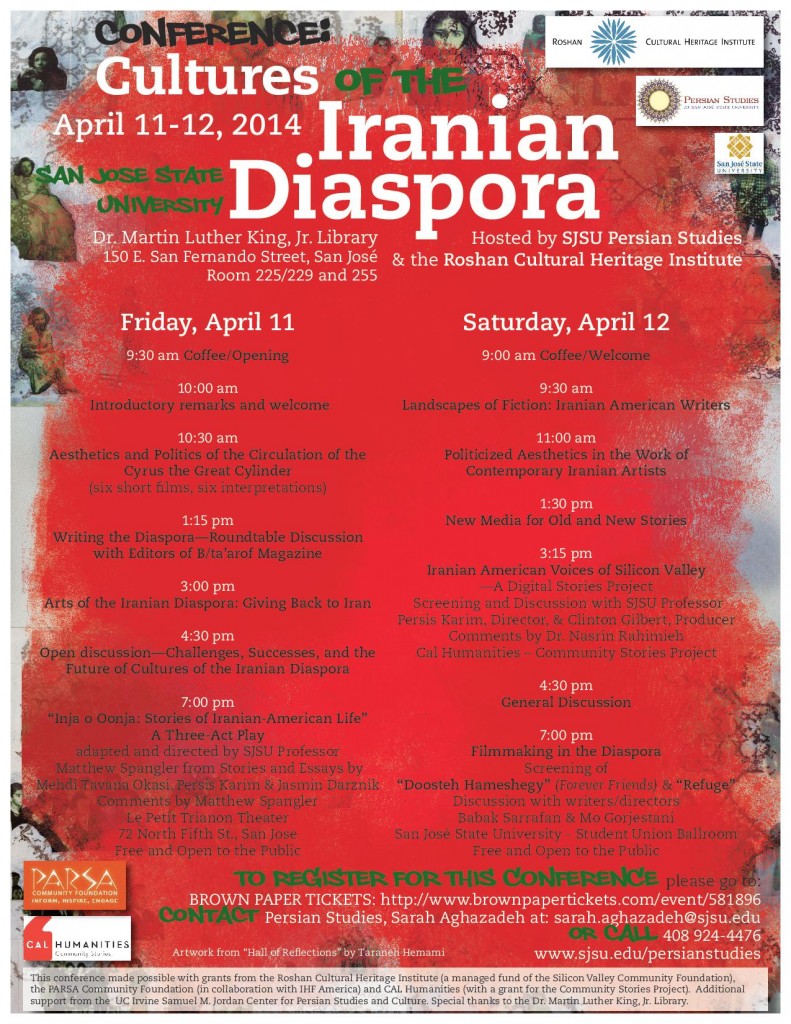
CHOCOLATE WITH FILMMAKER MO GORJESTANI
Whenever I find out about a young Iranian creative in the Bay, I geek out. Mo Gorjestani is a self-sustained independent filmmaker and creative director at age 30. His short films provide beautiful views into Iranian life and have received official selections in festivals from Tribeca to SXSW. My personal favorite thing about his films is how EACH frame is so thoughtfully composed.
Last week, we met up in a chocolate store, s’mores and cookies in hand, to talk about the creative process and staying motivated. Here’s what I found out:
Mo was born in Teheran and raised in San Jose with his father, former director of the Art Department at Tehran University, and his mother, an artist. Originally bound for life as a competitive wrestler, he went to college studying Philosophy, ultimately to dropping out when he realized he wanted to be a filmmaker.
At 19 Mo saw his first experimental videos through music videos, and one night, an idea came. He quit wrestling, went home, and started taking classes to build a portfolio to apply to film school, turning down the likes of USC and NYU to go to Vancouver because he loved the city. While there, he started watching as many films as he could. Movies like Close-Up, City of God, and Taste of Cherry changed his perception of what could happen in film.
During school, he shot his first short: Sayeh (The Shade) using mostly non actors he met by hearing them speak Farsi on the street. Set in a smoldering Iranian desert, a child selling balloons becomes the bearer of bad news for a travelling businessman who comes to treasure a stranger’s umbrella for the shade. The film was chosen by the school to be submitted to festivals and got its play at Tribeca. “It was something totally new for me, but it clicked. It was like I don’t know what I’m doing, but I feel really comfortable doing it.”
Since his graduation, Mo started his first production agency MKSHFT/CLLCTV, served as creative director and co-founder of Volio an interactive app from Esquire Magazine, wrote his second short Refuge produced by the Future State series by PBS and ITVS, launched his current production agency Molecule, and received a KRF Grant from the San Francisco Film Society to produce his first full-length feature.
Mo’s story really inspires me to trust in self-determination. He applies all of his sports motivational mantras to his creative process- always practicing, never giving up or hesitating, and pushing it to the limit. He points to his wrestling background as his source of strength in pulling through long hard nights in the creative’s hustle.
How do you stay on when things get so busy?
MG: When things get too busy, its important to stay grounded. My dog was one of my biggest inspirations in that way, no joke. I come home and he doesn’t care about anything that’s going on in your life of the “scene” he just sees you. He’s just trying to play.
Why do you make art?
MG: Human’s have this great gift — senses. We’ve been granted all these senses from the universe to experience the world and provide experiences and we should use them. So why do I create? I think at some level, most humans want to connect to something greater than themselves. We come from creation, so when we create it’s like we are harmonizing with some core truth. It feels genuine when I am creative, like its just coming out of me and feels great. You can tell because of how happy and proud people are when they just created something.
Some people are scared to be creative because it forces you to look inward. It’s not always a comfortable process but it’s a process of truth. You’re making something that can be judged or critiqued; its not a comforting process, but it forces you to reflect.
With your film being screened at the Cultures of Iranian Diaspora Conference, what do you think about this conference specifically showcasing cultural productions like writing film and visual art?
MG: Not everyone has access to contributing to canon or academia. Corporations control mainstream news, so art provides a way for experiences that aren’t commercially valued to get out. I like sharing this saying that I think I made from combining quote, “History is written by the wealthy, and artists have to tell the truth.” A look at the arts of a certain place or time, can fill in where official reports leave off.
Meet Mo for a screening and Q&A at the Conference April 12th –>
For those of you outside the bay, watch Refuge here!
 Photos from SOMA
Photos from SOMA